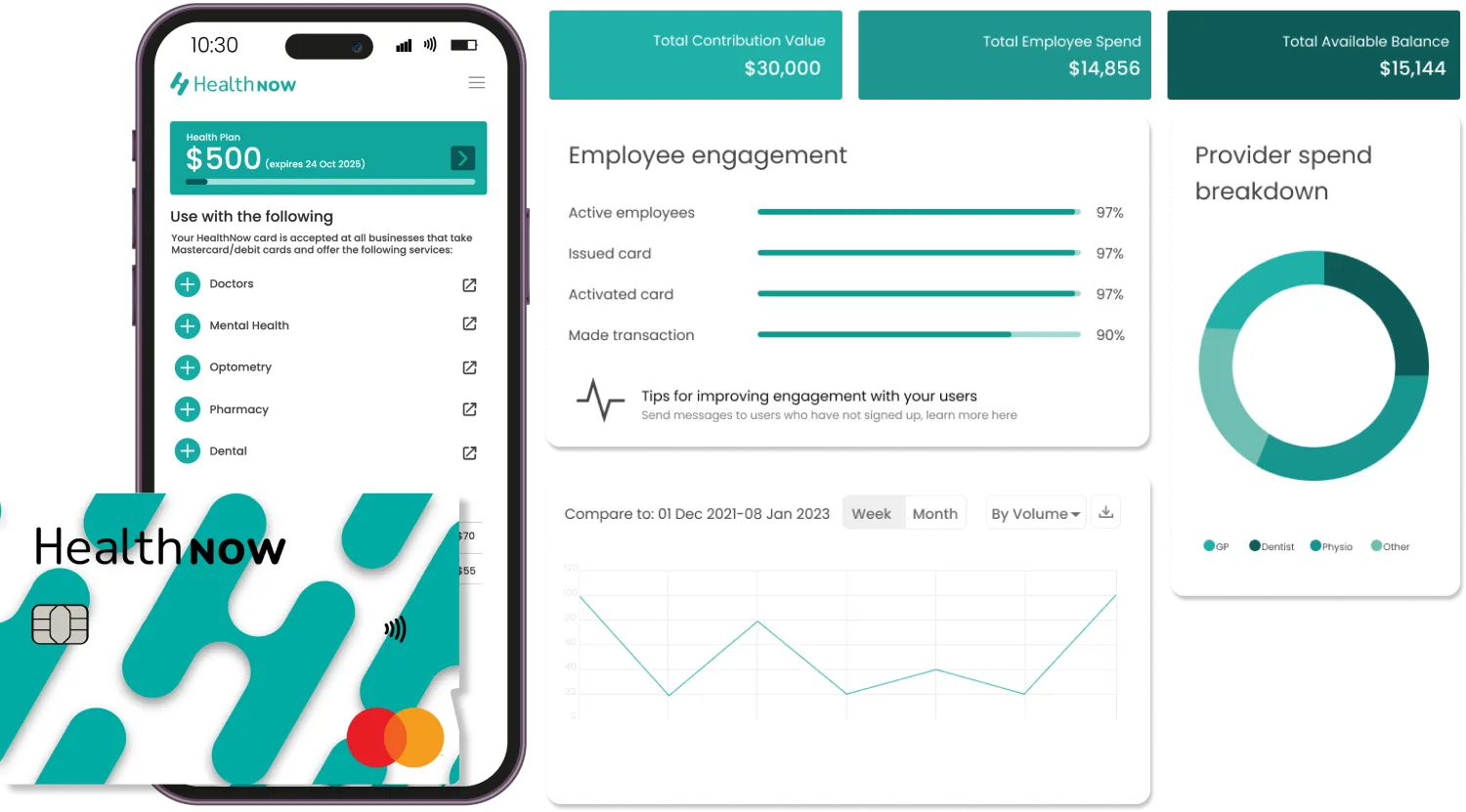Feeling Fatigued? You May Be Missing These Important Vitamins
Feel like you’ve accepted being drained and fatigued as a normal part of life? When we’re constantly plugged in, on the go, battling never-ending to-do lists and juggling work, family and lockdowns, it’s very easy to consider perpetual exhaustion as a regular part of life. But before you reach for that next cup of coffee to cover up the fatigue and help get you through, could a big part of the problem come from missing the right energy-boosting vitamins?
Vitamins and minerals play a key role in how our cells produce energy, and how this translates to how we move and feel. Here are five of the top vitamins that you could not be getting enough of if you are constantly feeling fatigued – and how, if needed, you can purchase supplements for these at a fraction of the upfront cost.
-
Vitamin B12
Vitamin B12 helps your body convert the food you eat into the energy you need to keep you going and fight fatigue. It may also support healthy nerve cell function, memory retention, healthy red blood cell formation and can help prevent anaemia. Because the body cannot produce B12, it must come from either your food or a supplement.
As B12 is only found naturally in animal products, vegetarians and vegans may struggle to meet their daily B12 requirements. Those with anaemia or digestive disorders like Celiac and Crohn’s disease may also lack B12. In those aged over 50 years, deficiency can be due to having less stomach acid, through which B12 is absorbed.
To help boost your B12 levels, start by eating more animal foods. The best sources are beef liver and clams, followed by fish, meat, poultry and some dairy products. If you’re not keen on animal products or are worried the quantities you’re eating are not enough, B12 vitamin supplements, or B-complex vitamins can help you get the most energy from your diet.
-
Iron
Your body needs iron to produce a protein called haemoglobin, which transports oxygen from the lungs to the organs and the tissues throughout the body. Your cells then use the oxygen to turn the sugars from your food into energy. If you aren’t getting enough iron from your diet then the oxygen supply throughout the body will be limited, which can leave you feeling tired and run down.
Women tend to struggle more with anaemia than men due to a tendency to consume less red meat, as well as from monthly blood loss, with approximately 70% of the body’s iron found in red blood cells and muscle cells. Iron levels can be boosted by regularly eating more red meat, green leafy vegetables, peas, broccoli, sprouts, tomatoes, lima beans, corn and beets, to name a few. Unfortunately, as only between 10-30% of the iron you eat will be absorbed and used by the body, it may be worthwhile looking into whether an iron supplement could be right for you.
-
Co-Enzyme Q10
Co-enzyme Q10 (CoQ10) is needed by your body to produce energy and support the health of your cells. It’s an impressive nutrient that was the basis of the 1978 Nobel Prize in Chemistry. It helps to prevent the breakdown of every cell in your body, especially in the heart, kidneys and liver where it is found in the highest quantities. When levels of CoQ10 are low, it may increase the feeling of fatigue and have you reaching for that next cup of coffee.
Our levels of CoQ10 can decrease naturally as we age, or alongside conditions like diabetes and statin treatments that are used to lower cholesterol levels. Because CoQ10 is fat-soluble, meaning that it dissolves in fat rather than in water like many other vitamins, those with very low fat in their diet may also be at risk of being deficient.
To help you get more CoQ10 in your diet, start by consuming more meat, fish and nuts. You may also want to avoid frying your food, which has been estimated to destroy up to 30% of CoQ10 available in the food. Supplements could be a simple answer for those that are feeling lethargic and are worried about declining levels of CoQ10.
-
Magnesium
The importance of magnesium is often underestimated – it’s part of almost all of the body’s major cellular, metabolic and biochemical processes, with over 600 enzymatic reactions needing Magnesium to be present for them to occur. It helps regulate our blood pressure and blood sugar, form energy from glucose and fats, aid our nerve conduction, muscle contractions and protein synthesis, control our heart rate and help our immune system keep us healthy and strong.
There are many ways to lose magnesium or to not get enough in the first place. Stress, caffeine and high-sodium diets are common precursors of less-than-ideal magnesium levels, alongside medications, vitamin D deficiency, diabetes, Crohn’s Disease and alcoholism. While the statistics from New Zealand are limited, a recent Australian Health Survey showed that over one in three men and women weren’t meeting their daily Magnesium requirements. This figure doubled when the age range shifted to 14 to 18-year-olds. To help improve your magnesium levels, try adding more greens, non-processed whole grains, legumes, nuts and seeds to your diet. Supplements can also help bridge the gap.
-
Riboflavin (B2)
Riboflavin (B2) is an essential B-vitamin that supports the metabolism, central nervous system (brain and spinal cord) and the adrenal glands. It helps your cells grow and create energy, and is used by the body as an antioxidant to support the immune system and keep skin and hair healthy. Riboflavin should be replenished daily as it is continuously secreted and needs to be present to allow other vitamins, including B6 and folic acid, to complete their roles effectively.
If you are pregnant, aged over 50, have a chronic illness or have had problems with substance abuse, you are more vulnerable to B2 deficiency. A deficiency can occur when a diet is either low in B2, the vitamin cannot be effectively absorbed by the intestines, or the body is having trouble using it.
When it comes to having more B2 in your diet, the good news is that plenty of foods contain the vitamin, including dairy products, meats and dark green vegetables. When your body has met its daily requirement, excess riboflavin gets disposed of through the urine and often turns it a bright yellow colour.
Ready To Try Supplements But Can’t Manage The Full Cost?
While supplements are a common way that New Zealanders are helping ensure they don’t lack essential vitamins, there’s a big barrier that holds many back: the cost. Whether you’re getting your supplements from the pharmacy or going through your GP for a prescription after blood tests, both avenues have significant costs involved that often just aren’t feasible. This is where HealthNow, the world’s first Buy Now Pay Later payment platform dedicated entirely to the health and medical field, has stepped in to help New Zealanders access the products and services they need when they need them – even if they aren’t able to pay the full amount on the day.
HealthNow works as an intuitive app on your smartphone that lets you decide how you’d like to pay when purchasing your supplements from the pharmacy, or at your doctors appointment. You choose how you’d like to split the cost – up to over six weeks – leaving you with just a fraction of the upfront cost on the day of the appointment while your provider gets paid in full by HealthNow. Unlike other payment platforms that charge health consumers fees or interest to use their service, HealthNow remains completely free to the user, ensuring not to penalise those looking after their health by charging them extra.
As purchasing supplements can be a repeated cost, HealthNow also has a specifically-designed health wallet where you and others can put away money safely to use for your health costs. This can be a great option for family members that want to help support you during a busy, stressful or tiring time, knowing the funds they deposit are dedicated to your health. Employers can also contribute as part of an employee wellness program. Just choose the amount you’d like to contribute, and whether you want it to be a one-off or ongoing contribution.
Get Started With HealthNow Today
Getting started with HealthNow so you can combat that fatigue is free and easy. Sign up to the app and follow the instructions to set up your account. You can also check out HealthNow’s full benefits and features, and see how it can help you access the healthcare you need in a range of aspects of your life without delaying due to finances.







